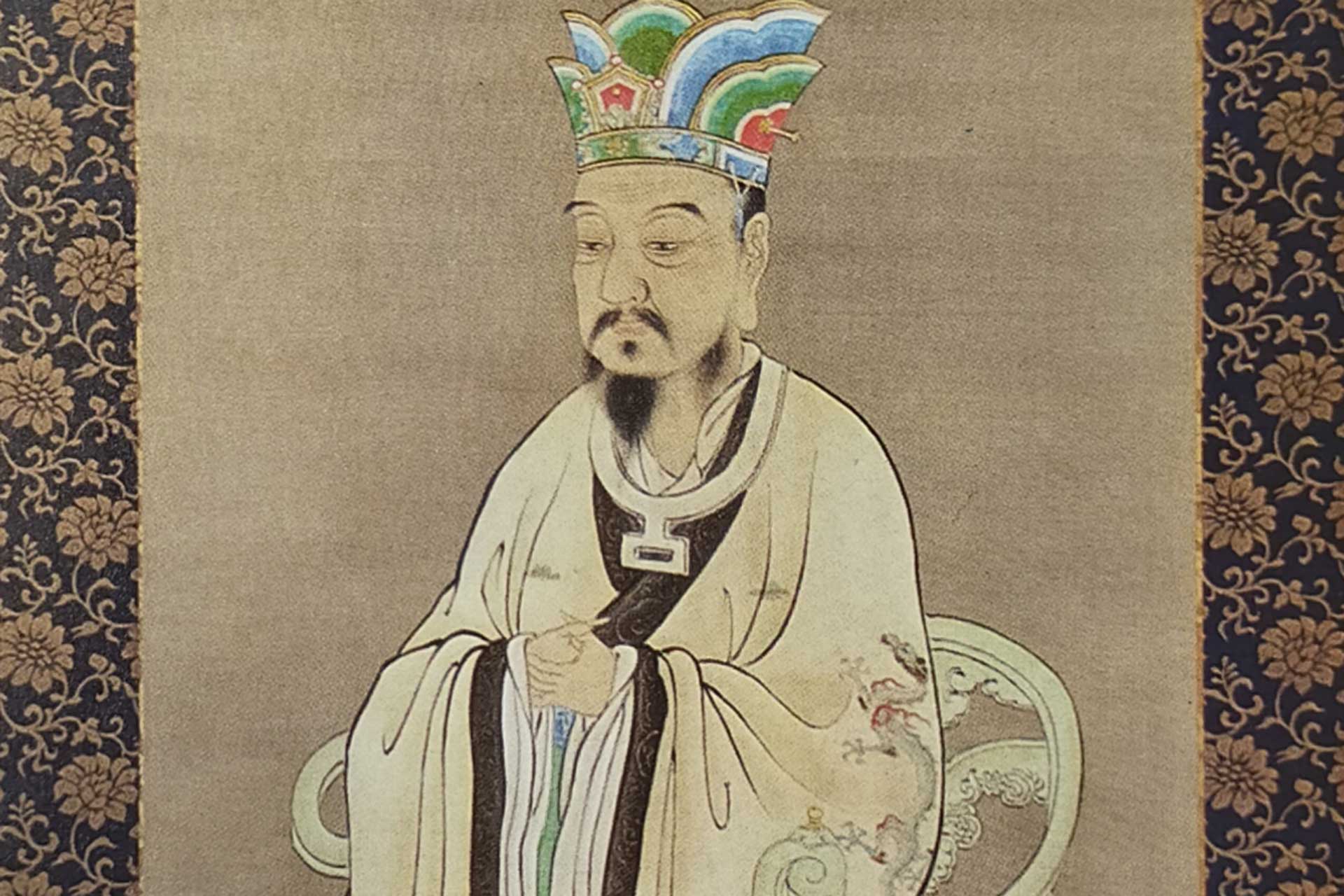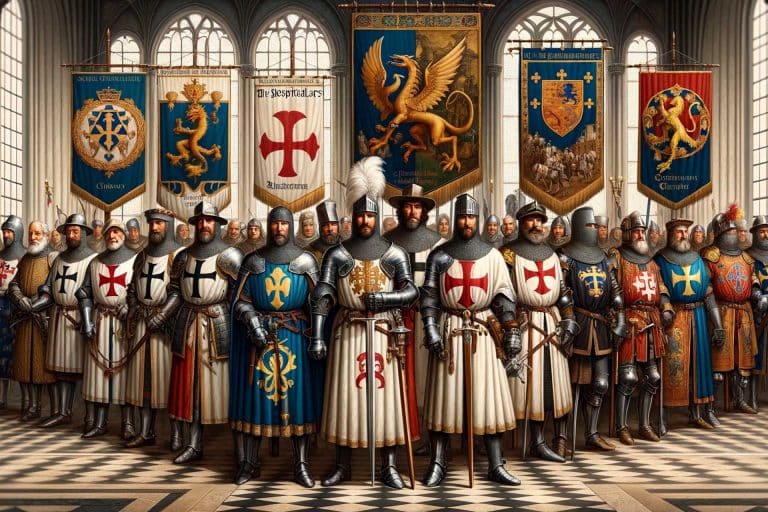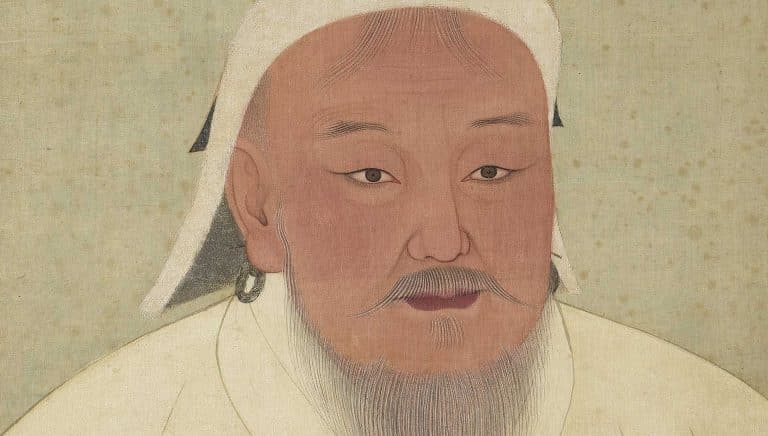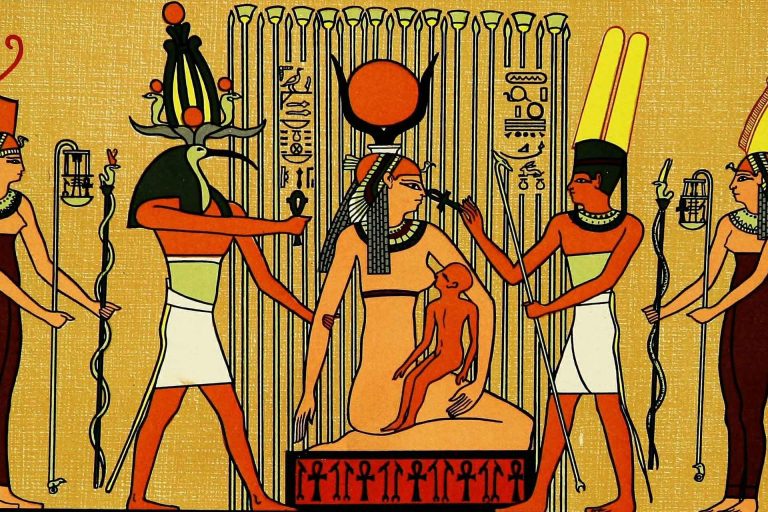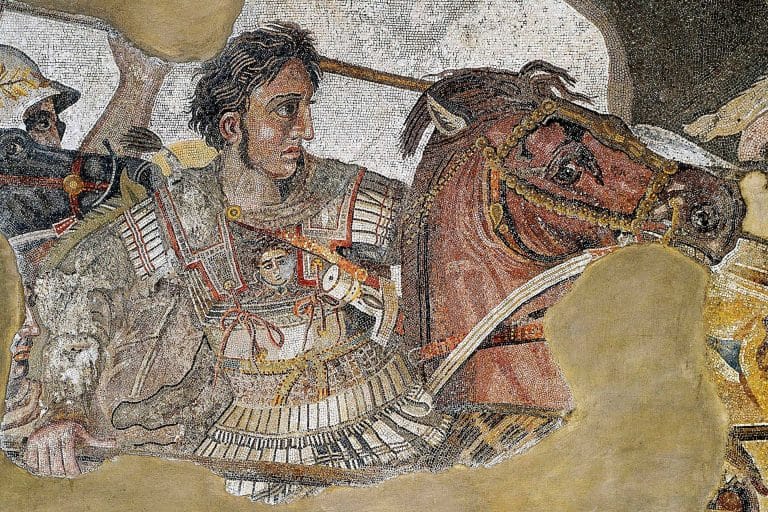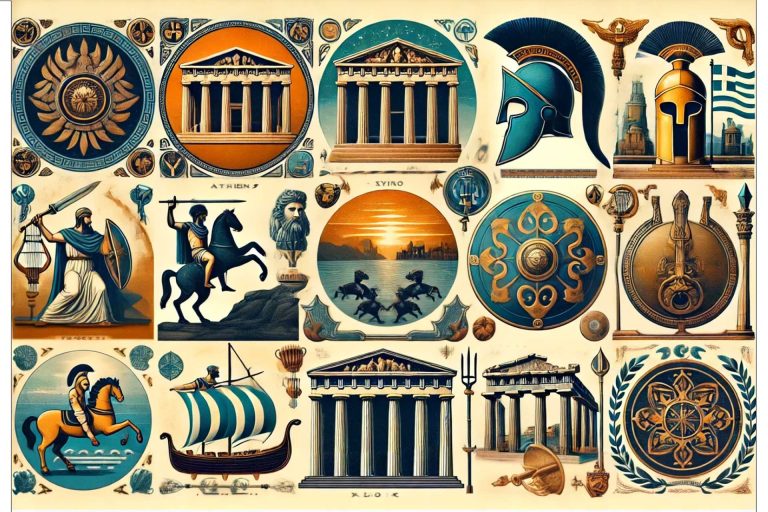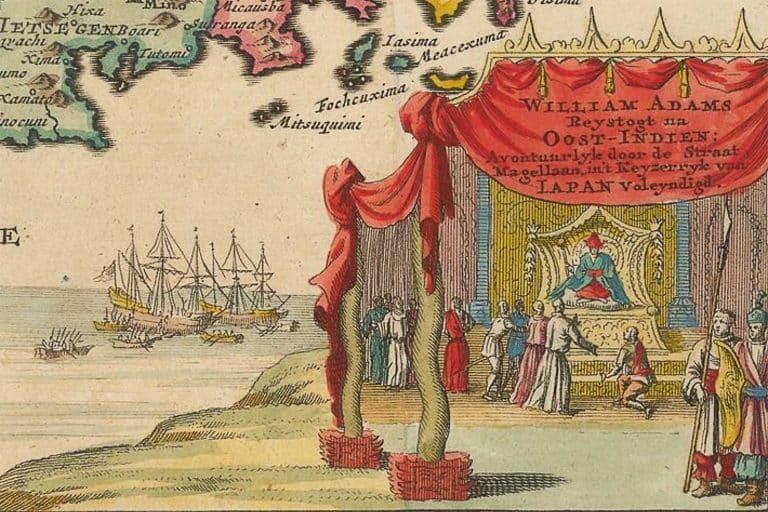Understanding Confucius: His Life and Legacy
Confucius, a revered philosopher whose teachings have profoundly shaped the cultural and ethical foundations of East Asia, remains a compelling figure even thousands of years after his time. Confucius emerged as a beacon of wisdom and moral guidance during a tumultuous time in Chinese history. His philosophy, centered on the core principles of righteousness, proper social relationships, and ethical integrity, sought to establish a harmonious society built on virtue and respect. As we delve deeper into his life and legacy, we begin to unravel the timeless insights that have made Confucianism an enduring philosophy, continuing to influence not only Asian societies but also resonating with global audiences in our contemporary world.
The Man behind the Legend

Confucius, born Kong Qiu or Kong Fuzi, was not only a Chinese philosopher, teacher, and political theorist, but also the founder of Confucianism, one of the most influential philosophies in Chinese culture. Born in 551 BCE in the state of Lu, present-day Qufu in Shandong Province, during the tumultuous Spring and Autumn period, Confucius belonged to the Kong family, a large but not particularly wealthy or influential clan. His father, Kong He, an officer in the Lu military, passed away when Confucius was just three, plunging the family into poverty.
Despite the financial struggles, he exhibited a strong desire for learning from a young age and was fortunate enough to receive a comprehensive education, studying music, archery, charioteering, calligraphy, arithmetic, history, and poetry. Married at 19, he had one son and two daughters. To support his family, he undertook various jobs such as managing stables and keeping books for granary stores.
Confucius’ political career began in his hometown of Lu, where he was appointed to the minor position of governor of a town. His dedication and vision of a just and harmonious society, underpinned by virtue and propriety, led him to eventually rise to the position of Minister of Crime in Lu. Confucius believed that society could be transformed by instilling a sense of virtue and propriety in its people, and he sought to implement policies reflecting these beliefs. However, the ruling class, more interested in maintaining their power and privileges than in creating a just society, often opposed him.
The Rebellion of Gongshan Furao
In the state of Lu, where Confucius held the position of Minister of Crime, the ruling aristocracy was divided into three powerful families: the Ji, the Meng, and the Shu. Among them, the Ji family was the most dominant and held the actual power in the state, overshadowing the nominal ruler, the Duke of Lu. Gongshan Furao, also known as Gongsun Yang or Gongshan Bao, was an official who opposed the Ji family’s hold on power, specifically the Viscount Ji Huan. He led a rebellion against the Ji family’s dominance, seeking to restore power to the Duke and end the rule of the aristocratic families.
During this time, Confucius was trying to implement his ideas for a just society in Lu, which included curbing the power of the aristocratic families and restoring the authority of the Duke. This naturally brought him into conflict with the powerful Ji family. When Gongshan Furao staged a rebellion, Confucius, being the Minister of Crime, found himself in a delicate situation. He did not support the rebellion, as it was against his principles of order and propriety, but he also did not support the Ji family’s stranglehold on power. This conflict of principles led to Confucius leaving the state of Lu without officially resigning.
The rebellion, however, did not result in any significant victories or incidents, as Gongshan Furao failed to garner enough support to overthrow the Ji family. His rebellion eventually fizzled out, leaving the power dynamics in Lu largely unchanged. However, this incident had a significant impact on Confucius’ life and career. Unable to support either side fully and unable to implement his ideas for a just society, Confucius chose self-exile. He left Lu and embarked on a 14-year journey through various states, hoping to find a ruler receptive to his ideas. As long as Viscount Ji Huan was alive and in power, Confucius knew he would not be able to return to Lu or implement his ideas there.
This period of exile was a turning point in Confucius’ life and career. It marked the end of his political ambitions and the beginning of his career as a wandering teacher and philosopher. Although he did not achieve the political success he desired, his teachings during this period would lay the foundation for Confucianism, a philosophy that would have a profound influence on Chinese society for more than two millennia.
Confucius: The Wandering Teacher & Philospher in Exile
The 14-year period of self-imposed exile marked a pivotal moment in Confucius’s life. Unable to support the rebellion against the Ji family in his home state of Lu, nor the family’s hold on power, he left in search of a ruler who would be receptive to his ideas. During this period, Confucius traveled through various states in China, including Wei, Song, Chen, and Cai. The constant traveling and uncertainty of this period were challenging for Confucius, but it also allowed him to fully develop and refine his philosophy, which would later become known as Confucianism.
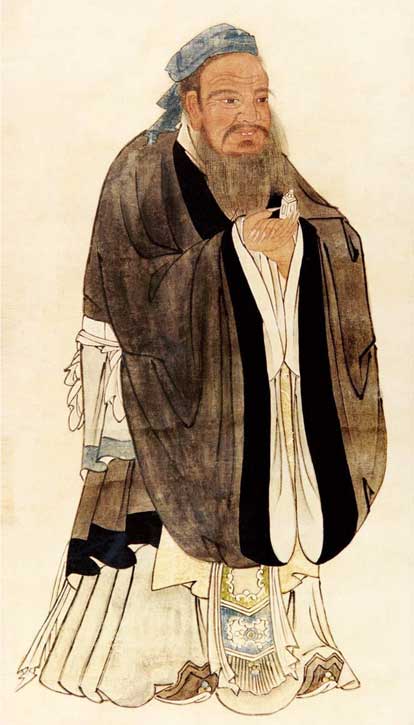
During his travels, Confucius gathered a group of loyal disciples who were deeply influenced by his teachings. It is estimated that he had around 3,000 followers, but only 72 of them mastered his teachings to the fullest extent. These disciples not only learned from Confucius but also contributed to the development and dissemination of his philosophy. They recorded his sayings and conversations, which were later compiled into the “Analects,” a collection of Confucius’s teachings and ideas.
The teachings of Confucius revolved around several key principles. First and foremost was the concept of “ren” (humaneness or benevolence), which Confucius believed to be the highest moral quality and the foundation of all other virtues. He also emphasized the importance of “yi” (righteousness or justice), “li” (rituals or propriety), and “zhi” (wisdom). Confucius believed that by adhering to these principles, individuals could cultivate their moral character and contribute to the betterment of society and that society as a whole could achieve harmony and order.
Another important aspect of Confucius’s teachings was the concept of “filial piety” (xiao), which refers to the respect and reverence that children should show towards their parents and ancestors. Confucius believed that filial piety was the foundation of all other virtues and the key to maintaining social harmony. He also stressed the importance of education and self-cultivation as a means to personal and social betterment.
The legacy of Confucius is vast and enduring. His ideas on morality, ethics, and social order have had a profound influence on Chinese culture and society for over two millennia. Confucianism became the official state philosophy during the Han dynasty and remained deeply ingrained in Chinese culture even after the fall of the imperial system in the 20th century. Confucian ideals continue to shape Chinese society in many ways, from the emphasis on family values to the importance of education and self-cultivation.
While Confucius was welcomed by some rulers and officials during his travels, he was often met with indifference or even hostility. Many rulers were wary of his ideas, which challenged the existing power structures and social hierarchies. In the state of Wei, Confucius was briefly imprisoned, and in the state of Song, he faced a assassination attempt. Despite these challenges, Confucius remained committed to his philosophy and continued to teach and influence those who were receptive to his ideas.
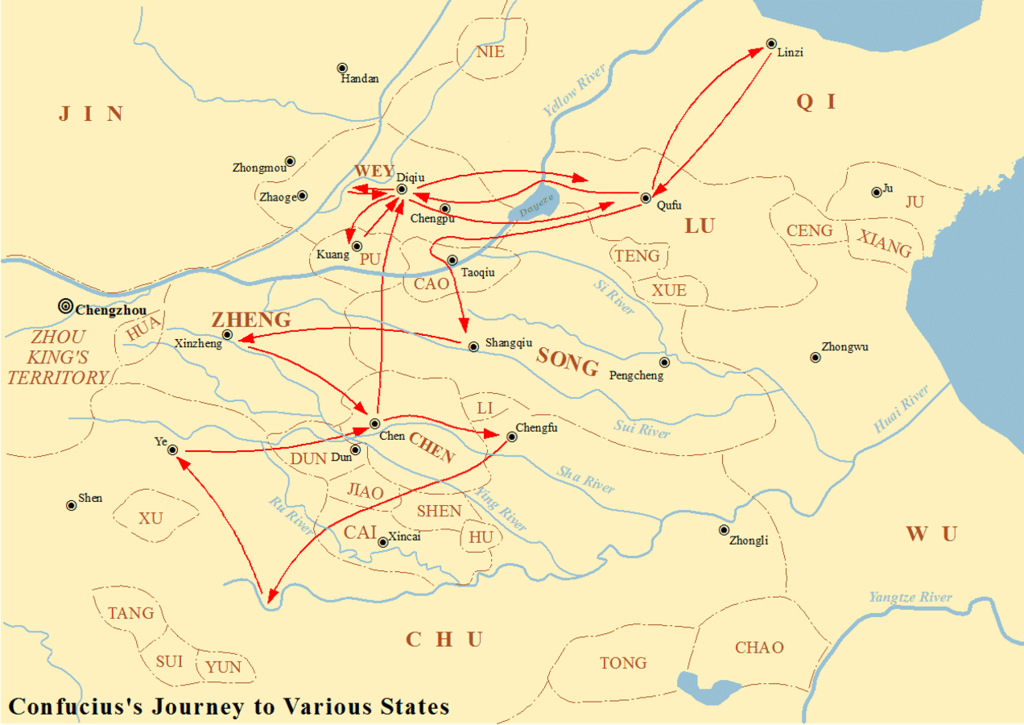
The impact of Confucius’s wandering teaching period cannot be overstated. Although he did not achieve the political success he desired, his teachings laid the foundation for Confucianism, a philosophy that would profoundly influence Chinese society for more than two millennia. His ideas on morality, ethics, and social order provided a framework for governing and living a meaningful life. Even though Confucius did not gain widespread recognition during his lifetime, his philosophy was later adopted by the Han dynasty (206 BCE – 220 CE) as the official state philosophy, and Confucianism became deeply ingrained in Chinese culture.

Ultimately, the period of exile was a defining moment in Confucius’s life and legacy. It allowed him to fully develop his philosophy, gather a group of loyal disciples, and lay the foundation for Confucianism, one of the world’s most influential philosophies.
Confucious Returns to Lu and Continues to Forge a Lasting Legacy

Confucius returned to his home state of Lu in 484 BCE. It is believed that the political situation in Lu had changed with the death of Ji Huan, the ruler he had opposed, and so Confucius felt it was safe to return. He was now 68 years old, and although he had hoped to be appointed to a government position, he was not offered any significant role. Disappointed but resigned, Confucius spent the remaining years of his life teaching his disciples and reflecting on his life’s work. He passed away in 479 BCE at the age of 73.
The legacy of Confucius is vast and enduring. His ideas on morality, ethics, and social order have had a profound influence on Chinese culture and society for over two millennia. Confucianism became the official state philosophy during the Han dynasty and remained deeply ingrained in Chinese culture even after the fall of the imperial system in the 20th century. Confucian ideals continue to shape Chinese society in many ways, from the emphasis on family values to the importance of education and self-cultivation.
Beyond China, Confucius’s ideas have also had a global impact. His philosophy has influenced many other East Asian countries, including Japan, Korea, and Vietnam, and has also found resonance in the West, where his ideas on morality and ethics have been compared to those of ancient Greek philosophers such as Socrates and Aristotle.
In addition to his contributions to philosophy and ethics, Confucius also had a lasting impact on politics, music, and poetry. He believed that a well-ordered society required a well-ordered government and that rulers should lead by example rather than by force. He also believed that music and poetry were essential to the cultivation of moral character and played a crucial role in his own teachings.
In addition to his contributions to philosophy and ethics, Confucius also had a lasting impact on politics, music, and poetry. He believed that a well-ordered society required a well-ordered government and that rulers should lead by example rather than by force. He also believed that music and poetry were essential to the cultivation of moral character and played a crucial role in his own teachings.
The life and legacy of Confucius are deeply intertwined with the history and culture of China and the world. His teachings on morality, ethics, and social order have had a profound and enduring impact on Chinese society and have influenced cultures and philosophies around the globe. From his humble beginnings in the state of Lu to his wandering years in exile and his eventual return home, Confucius’s journey is a testament to the enduring power of his ideas and the indelible mark he left on the world.

